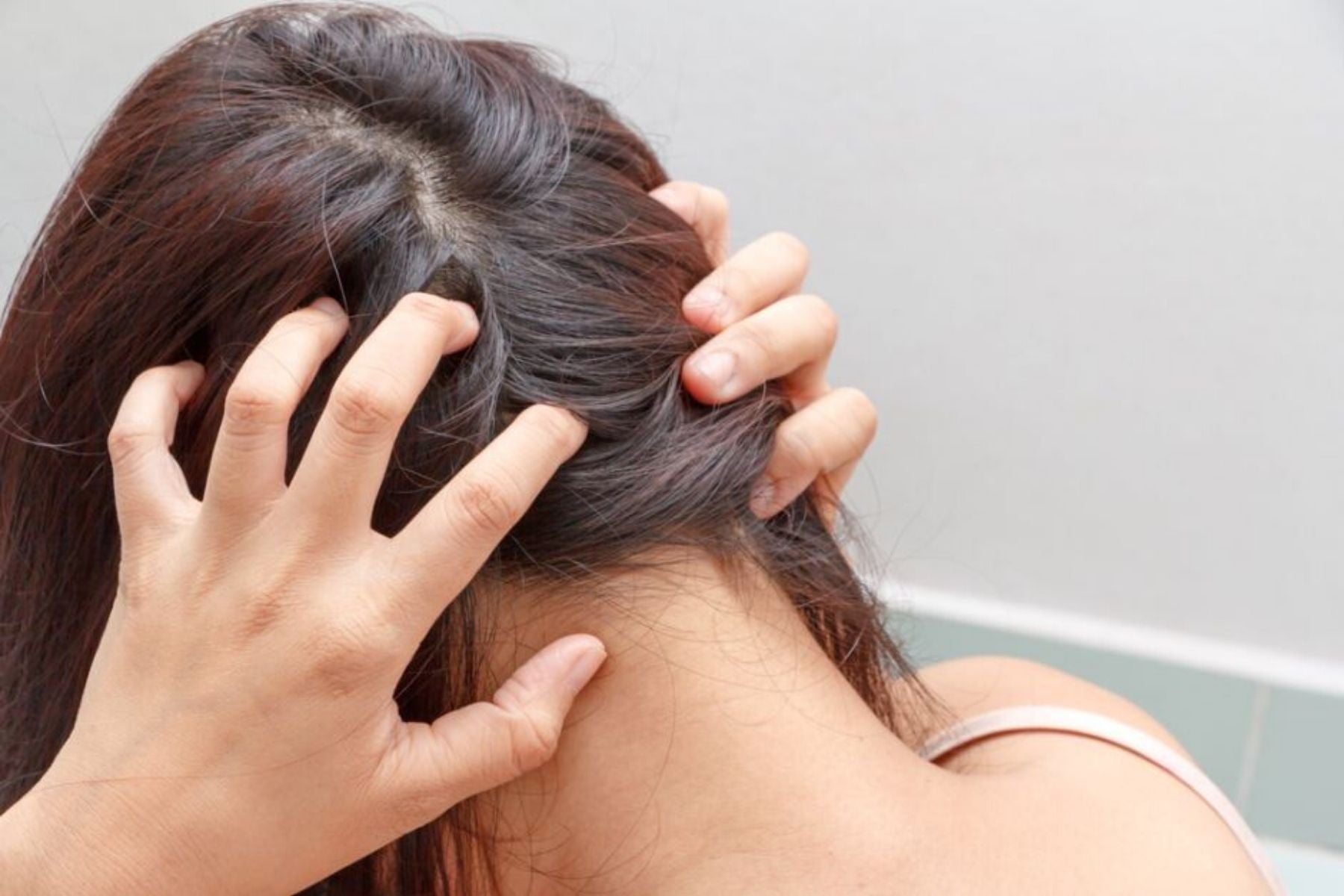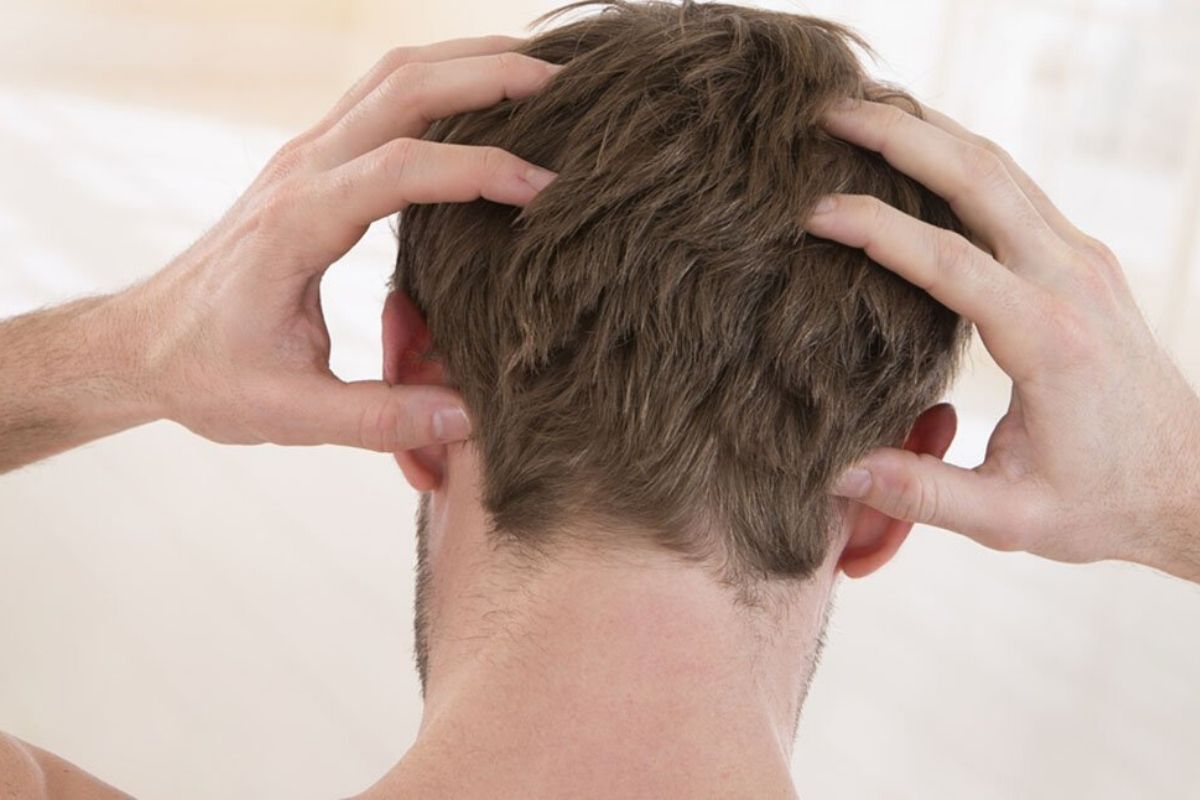
How to care for a sensitive scalp?
The symptoms of a sensitive scalp are somewhat different from those of sensitive facial skin. These symptoms include redness, burning, tingling, itching, pain, and so on. Redness and itching are the most common symptoms, with erythema being the most difficult to notice.
A sensitive scalp is a common condition that can cause discomfort and irritation, affecting the overall health of the hair. Those who experience this sensitivity often seek effective solutions to relieve the discomfort and maintain a healthy scalp.
Below are some recommendations for caring for a sensitive scalp and effectively addressing this problem:
1. Use gentle, natural products:
Opt for shampoos, conditioners, and hair treatments specifically designed for sensitive skin. Products with natural ingredients are ideal for soothing irritation and avoiding adverse reactions.
2. Avoid excessive use of chemicals:
Harsh chemicals in some shampoos and hair treatments can worsen scalp sensitivity. Minimize the use of products with ingredients like sulfates, parabens, and synthetic fragrances.
3. Maintain an adequate care routine:
Wash your hair with lukewarm water instead of hot to prevent dryness and irritation. Also, avoid vigorously rubbing your scalp while washing and opt for gentle towel drying. See more here .
The need for specialized products
While following these steps can provide relief for a sensitive scalp, sometimes more is needed than just a gentle skincare routine. This is where specialized products, specifically designed to soothe and protect sensitive scalps, come into play.
Modesta Cassinello's curly and frizzy hair products are an excellent choice for those with sensitive scalps. Formulated with natural and gentle ingredients, these products offer an effective solution to keep the scalp balanced and healthy. Modesta Cassinello's product line is designed to nourish curly hair while soothing scalp sensitivity, providing a comprehensive solution for those looking to gently care for their hair.
Why does the scalp become irritated? Factors
The main factors that cause the scalp to become irritated, red, and even itchy are: pollution, emotions, cosmetics, high temperatures, and diet.
If you experience any of these signs , it's important to pay attention to all the factors that may be contributing to your sensitive scalp and begin creating a hair care ritual with cosmetics and treatments that can help improve this problem. If the problem persists, a visit to a specialist is always advisable.
Pollution
Today we are more aware of the damage our hair suffers from pollution. Polycyclic aromatic hydrocarbons are a risk to the health and beauty of our scalp and hair.
In cities with high levels of pollution, polluting particles can deposit on the scalp , causing oxidative damage and leading to itchiness and dryness. And if we add ultraviolet radiation, things get worse... sun-damaged hair quickly dehydrates, becomes more brittle, and appears frizzy and dull, making it even more vulnerable to these particles.
That's why in cities with high levels of pollution , frequent, thorough hair cleansing with a good shampoo is highly recommended to prevent these particles from accumulating. And don't worry about washing your hair as often as necessary with a shampoo formulated specifically for this purpose; you'll prevent these particles from accumulating and irritating your scalp.

Emotions
The role that the nervous system plays in hair is increasingly recognized, so good stress management and adequate rest can do a lot for your hair .
Stress causes a change in the levels of the hormone cortisol, which causes follicles to enter the shedding phase sooner without completing their growth phase. Continued stress also causes poor microcirculation in the hair follicle, a persistent situation that leads to loss of density and weakness.
Cosmetics
Hair care cosmetics can sometimes irritate the scalp . It's not well known how cosmetic ingredients trigger these allergic reactions, but it is known that it's related to T cells in the immune system and a protein called CD1a. What can we do? Look for cosmetics that rebalance the scalp and offer a gentle, effective wash, avoiding perfumes and high-detergent surfactants as much as possible.
Our shampoos are formulated to be combined with treatment shampoos for sensitive scalps and also for use between flare-ups. In addition to being highly tolerable, they are formulated without phenoxyethanol, parabens, silicones, dyes, or perfumes.
Our recommendation? The fragrance-free H03 Shine and Vitality Shampoo , formulated with restorative ingredients like olive oil, and a gentle cleansing base that will cleanse your scalp and hair more gently.
Temperature
The temperature of your shower water can be a determining factor in your hair health. Very hot water can irritate and dehydrate your scalp , the foundation of healthy hair.
The ideal temperature? A temperature similar to body temperature, i.e., around 36°C. The right shower temperature, along with proper hair washing, are key when it comes to caring for a sensitive scalp.
Feeding
Your hair, like your skin and your health, needs good nutrition . Today we know that there are foods rich in antioxidants, healthy fats, vitamins, and minerals that can improve the appearance of your scalp and hair.
But there's no evidence that any specific food has a specific effect. When it comes to the beauty of your hair, it's your overall diet that has the benefits.
And what is the diet with the most solid and consistent evidence for health? Our Mediterranean diet is a balanced, varied, and moderate eating pattern, always accompanied by an active and healthy lifestyle.
A diet rich in minimally processed, fresh, and seasonal foods, with a predominance of vegetables, whole grains, legumes, nuts, and fruits. A diet that includes a moderate consumption of dairy products, fish, eggs, and meat and promotes the use of olive oil as the main source of cooking fat, which will add flavor to all the dishes on your table. In short, a diet that will provide you with all the essential nutrients for hair growth.
And remember, scalp itching, as well as skin itching, is directly related to scratching. The more you scratch, the more itchy it becomes, increasing the risk of injury. Proper management of all these factors and proper care are the keys to a sensitive, yet healthy, scalp free from annoying itching.
I hope you find all these tips helpful, and don't forget you can always leave a comment or send us a private message at hola@modestacassinello.com with any questions or additional information.


Leave a comment
This site is protected by hCaptcha and the hCaptcha Privacy Policy and Terms of Service apply.